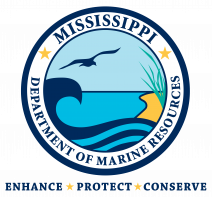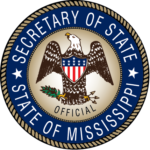13-59-SLP| May 22, 2013
BILOXI, Miss.—With the Memorial Day weekend upon us, more boaters will be testing the warm waters of the season. The Mississippi Department of Marine Resources (MDMR) would like to remind boaters to keep safety in mind before embarking on any summer boating fun.
“Common courtesy and common sense go hand in hand when dealing with boating safety,” said Chief of Marine Patrol Walter Chataginer. “Remember to wear your lifejacket: they float, you don’t.”
Boating under the influence (BUI) is now .08 and strictly enforced.
DMR Marine Patrol offers these tips for safe boating:
1. FIRST AND FOREMOST, WEAR YOUR LIFE JACKET!
The number one cause of death on the water is drowning. The majority of persons who drown are not wearing a lifejacket. The DMR strongly recommends that you wear your life jacket. Mississippi law requires that you must have a wearable personal flotation device (PFD) for each person onboard your vessel while it is in use. It also requires that children 12 years and younger wear this PFD while onboard vessels less than 26 feet long while the vessel is in use. The law also requires that a PFD must be worn while operating or riding on a personal watercraft (PWC).
2. KNOW YOUR BOAT AND ITS CAPABILITIES.
Many accidents result from boats being used in a manner that is beyond their capability. DON’T OVERLOAD THE BOAT! Maximum capacity of persons and maximum motor size is found on your vessel’s capacity plate. Tailor the size of your boat to how and where you expect to use it. Keep your small aluminum johnboat in the small rivers and bayous. Don’t venture out into unprotected waters where conditions can suddenly change. Afternoon summer squalls are normal in this region and can pop up with little or no warning. Remember, you can head out with a fair wind at your back and have a pretty safe and comfortable ride. Only when you turn around to head in do you realize that the wind and sea conditions are more than you bargained for.
3. HAVE YOUR BOAT PROPERLY EQUIPPED.
Make sure that your necessary equipment and supplies are onboard, properly maintained and up to date. Just because you had an item onboard last year and it looked OK, doesn’t mean that someone didn’t remove it since then or that it didn’t expire or go bad. Visual distress flares are items that frequently fall into this category. They may look as good as new, and in all reality would probably function just as well, but they do have an expiration date that must be adhered to.
4. MAKE SURE YOUR BOAT IS READY FOR YOUR FIRST TRIP OF THE SEASON. Don’t venture out on a long offshore voyage before checking out the boat in a safe area closer to shore. Remember, fuel that has set idle for several months during the winter can and usually will cause problems for your engine. It is recommended that a good brand of fuel stabilizer be added to your tank before the winter lay-up. This will help to keep harmful deposits from forming in your fuel system. An empty tank or almost empty tank is just about a sure bet to develop condensation due to temperature variation. This condensation will wreak havoc with your fuel system. Good fresh gas is your best bet for a safe voyage.
5. KNOW THE WEATHER.
Keep abreast of the latest forecasts. Don’t get caught unprepared. A little research and planning will pay off in the long run and make for a happier and more comfortable voyage. Weather conditions can change very quickly. Be prepared for these changes and know what steps to take if you are caught in an uncomfortable situation.
6. FILE A FLOAT PLAN.
Before going out on a vessel it is always a good idea to leave a float plan with a local marina, relative or friend. A float plan should: describe the vessel, its number, size, make, capacity, horsepower and type of engine; list where you are going, the route and your expected return time; and give the number of passengers, their names and addresses, and a contact in case of an emergency.
7. HAVE SOME FORM OF RELIABLE COMMUNICATIONS.
VHF radio or cellular phone is the recommended communication device. CB radios will work, but are not quite as reliable. Local maritime agencies do not monitor CB on a regular basis. If venturing offshore, a weather radio receiver is recommended.
These are just a few Safety Tips. For more in-depth information or other questions or to enroll in a free boat and water safety course, please contact the DMR Bureau of Boat and Water Safety at 228-523-4128.
The Mississippi Department of Marine Resources is dedicated to enhancing, protecting and conserving marine interests of the state by managing all marine life, public trust wetlands, adjacent uplands and waterfront areas to provide for the optimal commercial, recreational, educational and economic uses of these resources consistent with environmental concerns and social changes. Visit the MDMR online at www.dmr.ms.gov. Follow us on Twitter @Mississippi_DMR.
Contact: Trinity Ryals Walker
Phone: (228) 523-4138
[ Download PDF ]


